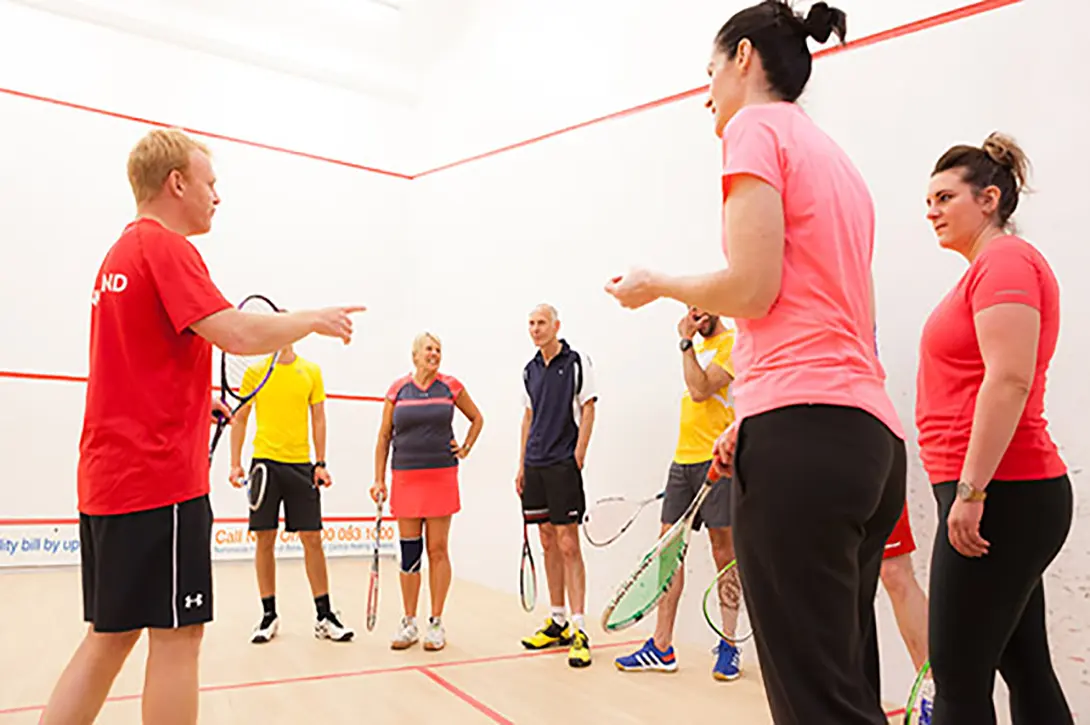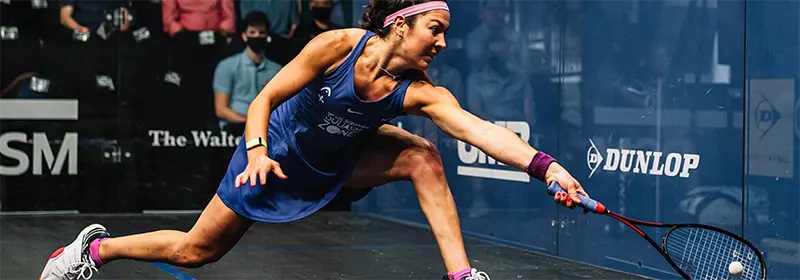12 June 2022 / 3-Min Read / Translate
The first thing I want to say is that reaching the top should not be the objective of every player that plays squash. As a community and sport, I feel we often put too much emphasis on the skill level of players rather than the enjoyment level. Organisations promote the “elite” coach pathway at the expense of the “participation” coach. As coaches we are fed the idea that to be considered a successful coach, you need to coach “elite” players. This article argues against that idea.

Not all squash players want to be champions
This is an issue that plagues all sports. If I ask you to name a famous coach in your given sport, I have little doubt that you would mention the coach of a famous player or team. The fact they the coach is famous must mean they are connected with professional sport.

Do professional squash players have more fun playing squash than you?
And I am not saying that those coaches and players are not important to the sport, they are. But they are the tip of the triangle. The top, the elite, and the chances are that without the base of the triangle they wouldn’t exist.
A participation coach is a coach whose primary objective is to encourage players to enjoy playing squash. They don’t have to be well-trained or highly experienced. In my travels around the UK with the Dunlop Roadshow, I was lucky enough to work with many excellent participation coaches. In fact some were “better” at this sort of coaching than professional coaches – especially young professional players who thought that simply being a great player was enough to make them a coach (That really annoys me!).
Being a participation coach is not about knowing exactly how to swing a racket or much more importantly about how best to transition from their current swing to a better one, it’s about providing a challenging environment for groups of people of a similar standard to play and practice with each other while unconsciously learning new skills and abilities.
Ladies mornings, junior groups and club nights are the main situations these types of coaches flourish. They are not as dramatic as the intensely competitive matches of inter-club nights, but they are where thousands of squash players first feel the thrill of hitting a ball tight to the side wall.
What training is given to these people? Some, yes, you only need to look at the coaching pathway of most national squash organisations to see that this type of coach is the first on the list. And that’s quite fair. Any standard of player can join this level of course. To reach the higher levels of coaching qualifications coaches need to be better players themselves.
Now I am not arguing against that general concept, but I feel there is subtle acceptance that these types of coaches should be a stepping stone for better things and I don’t agree with that. I feel that we should accept that there will be different types of coaches and train those to the best of our ability.
Imagine a new coaching pathway for a moment. Instead of a simple ladder, with different levels, we had something more like a tree. Where coaches could branch out into specialties. For example, you could train to be a Master Participation Coach. After taking the initial level 1 coaching course, a coach could choose to focus more on this aspect than elite performers. They would take everything they have already learnt and take it to the next level.
One final point I would like to make is how too often once coaches are qualified, unless they want to move onto the next level, they are almost forgotten. National organisations should have a programme of updates and regular enhancement training. These coaches need to interact with other coaches, to share ideas and tips, and there should be a clear and promoted programme to do that.
It’s possible that these participation coaches make the difference between sports dying and sports remaining popular. What do you think?